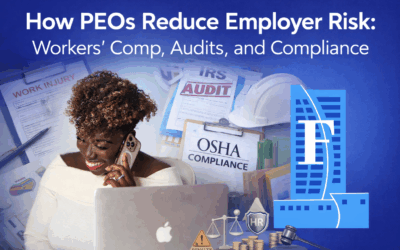Does the upcoming tax season put a burden on your mind? Then, dear small business owners, give this blog a read. It will help you prepare for the upcoming tax season and deal with it like it’s a piece of cake.
5 tips for driving away tax season blues
Here are 5 tips to help you deal with the tax season:
- Conduct a quarterly review of your business’s performance
The best way you can prepare yourself for the tax season is by performing quarterly reviews of your business’s financial statements. By reviewing the profit and loss statements and all the other expenses related to your business, in this manner, you will be able to make sure that everything is in proper order.
In addition, the Internal Revenue System (IRS) expects quarterly payments from small business owners who predict to owe more than $1,000 at the end of the financial year. Therefore, you can make an estimation of the year-end tax bill and pay the amount by filing Form 1040-ES.
You can pay your quarterly tax on the following dates:
-
-
-
-
-
-
- 15th April
- 15th June
- 15th September
- 15th January
-
-
-
-
-
- Separate your personal and business-related finances
Many small business owners get into tax troubles as they record their personal costs as business expenses. Thus, it would be best if you separated them in order to avoid trouble with the IRS. If the federal agency decides to audit your business and finds out that you mingled your expenses, it will automatically start looking into your personal expenses because of the comingled money.
One good practice is having separate bank accounts and credit cards for your business and personal expenses. Moreover, it is also necessary that you run only your business-related expenses from your business account or credit card.
This will enable you to file a clean and accurate record of your business expenses when the tax season comes. In addition, your personal expenses will also remain private.
- Maintain accurate records
In order to file your tax returns correctly, it is crucial for you to maintain accurate records. This is a critical step to avoid an audit by the IRS. For example, you can pull bank statements from your business account and tally them with invoices or receipts to keep track of your income and expenses.
A common mistake that most small business owners make is that they do not record credit card points as their business’s profit. Unfortunately, these errors only crop up in the event of an audit and, therefore, should be recorded as income.
Furthermore, to maintain a clean record, experts recommend that you use basic accounting software to track your finances correctly. You see, while filing your taxes, human error is a possibility that you just cannot rule out.
So, to avoid inaccurate tax returns, you can take the help of various accounting platforms available in the market. What’s more, these software programs will easily integrate with your e-commerce store and automatically create reports. Thus, they will save your time and also reduce the chances of errors.
- Create a checklist from the previous tax season’s documents
It is a very hectic and time-consuming task to collect all your documents when the tax season comes. Thus, if you make a checklist from last year’s tax season, you already have an idea of what documents to submit in the current season.
You can keep all your tax documents in one file and tally them with what you may have missing in the current year’s documents.
Neatly organizing all your tax documents will help you keep them in order and enable you to avoid last-minute hassles. Furthermore, communicating and working together with your accountant also helps out a lot.
- Classify your business correctly
A lot of small business owners face problems when it comes to classifying their businesses correctly. If you fail to do it correctly, you can end up overpaying during the tax season.
Remember, classifying your business as a Sole Proprietor, Single Member LLC, Limited Liability Company, Limited Liability Partnership, or C or S Corporation will have different effects on your taxes. Thus, the best practice in this regard is to get a consultation from an accountant and attorney to know how to classify your business correctly.
These are a few small tips that you can take into account while preparing yourself for the tax season. Furthermore, you should consult a Certified Public Accountant (CPA) to know the tax laws in your state and also check for business tax deductions.
Contact Us
Find out if a PEO is the right solution for your business.
Fill out the form below and we will contact you to schedule a chat.





